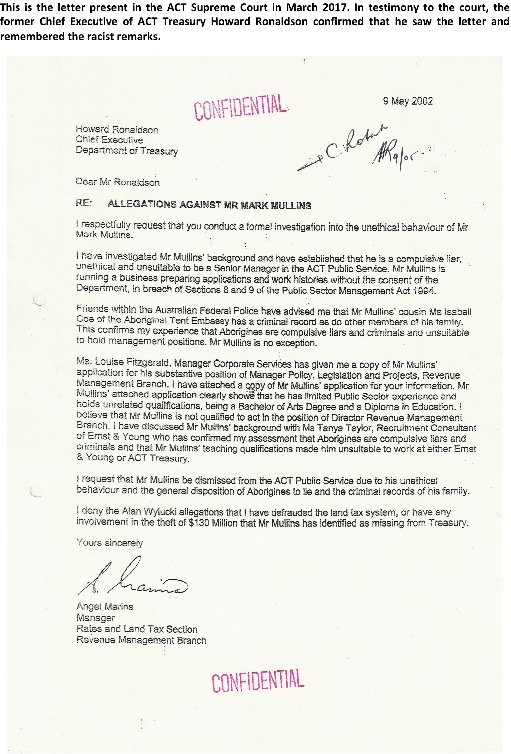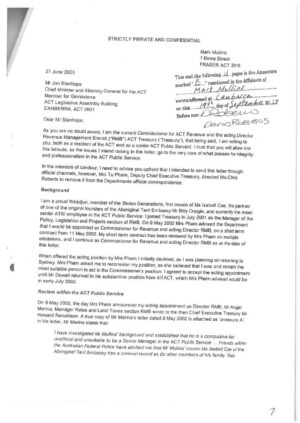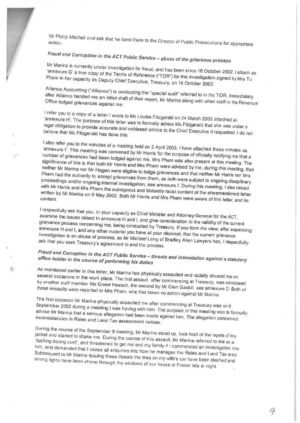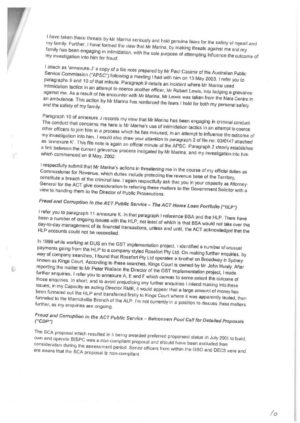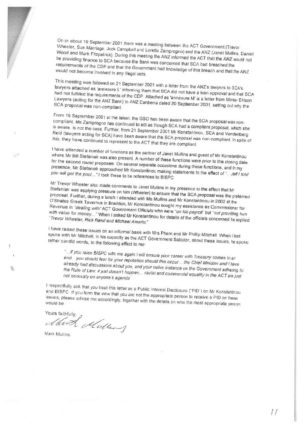Labor has led government for two decades in the Australian Capital Territory. With the impending election on October 17 many Canberrans should be considering what substantive benefits their leaders have delivered to advance the lives of the average person. Do the Labor Party deserve another four years of leadership in the ACT?
Since Labor regained government in 2001, they have overseen the growth of the population from the census that year to 309,184 to 396,857 in 2016,[1] its growth on average with the national average. Growth is on par with the national average and is primarily driven by people moving from interstate.[2]
The big-ticket issues in Canberra like every other jurisdiction are health care, affordable housing, transport. But ACT Labor has also pushed a social-justice agenda seeking to be national exemplars of equality and diversity. In 2004, the ACT’s Humans Rights Act was passed by the Legislative Assembly, under the shadow of racism and corruption directly targeting its most senior Indigenous public servant who had been dismissed from his role as the Commissioner for ACT Revenue. The ACT government argued that the passing of the legislation was a watershed moment marking a maturing of the nation’s conscience. At the same time, ACT Labor was facilitating the fit-up of the former Mullins, the recently terminated Commissioner for ACT Revenue, on the basis of a now discredited public interest disclosure (PID) submitted by an ACT Treasury public servant by the name of Angel Marina, a man intent upon ruining the life and career of Mullins for no other reason than his First Nations heritage.
In 2001, Mullins rejoined the ACT Public Service in the Chief Minister’s & Treasury Directorate, having left the Urban Services the year before. On 8 May 2002, he was appointed Commissioner for Revenue. The following day, Angel Marina penned the following racism, delivering it to the Chief Executive Howard Ronaldson:
“Friends within the Australian Federal Police have advised me that Mr Mullins’ cousin Ms Isabell Coe of the Aboriginal Tent Embassy has a criminal record as do other members of his family. This confirms my experience that Aborigines are compulsive liars and criminals and unsuitable to hold management positions. Mr Mullins is no exception.”
Ronaldson has been asked about this letter on several occasions, including most recently in the 2017 ACT Supreme Court Case at which he stated that the letter has stuck in his mind because it wasn’t everyday that you came across such blatant racism. What’s more Ronaldson affirmed during the case that a signature upon the copy he sent to Pat to alert him of the racist abuse was his own.
In 2001, Indigenous Australians accounted for 1.2% of the population of the ACT; whilst that number has grown to 1.8% in the 2016 census, it has not been sufficient for the ACT Government to consider that it should review the racist attacks upon Mullins that ultimately saw them pillory an innocent man and leave indelible scars upon his family. The lack of genuine interest in addressing racism within the ACT Public Service was further highlighted when in December 2013 the ACT Government conducted an Inquiry into ACT Public Service Employment. The video discussions presented numerous tales of racism and harassment in ACT workplaces. In a subsequent report the Chief Commissioner for Public Administration Andrew Kefford respond to a questions regarding the very low rate of reporting racism within the ACT Public Service:
“It disappoints me, certainly. Surprise? As Mr Byles has said, we are a service that is made up of 22,000 people drawn from a society that is obviously much greater. I would like to think, and certainly it is our intention and aspiration, that we have a service where the values and behaviours to which we all ascribe, and indeed ultimately to which we are all legislatively bound, and I would like to think we are a service where we never have transgressions, but at the same time we are an organisation of 22,000 individuals, and just as there are transgressions of other standards of behaviour set out in areas of the statute book—one is too many but, at the same time, I am not naive enough to sit here and say we will never have an issue. That is why we have in place frameworks that, first of all, as I say, are explicit in terms of our expectations and then also provide for mechanisms for those who transgress those standards of behaviour to be disciplined and dealt with.”[3]
Mullins endured 19 months of racial taunts, physical assaults and threats to his family all without a skerrick of support from his employers. On 27 June 2003 he submitted a PID outlining corruption within ACT Treasury and the racism and threats, which he was enduring. That PID was still in the hands of the ACT Government exactly two years later as stated by the ACT Ombudsman in a letter to Pat dated 26 June 2005. In 2017 the ACT Supreme Court accepted the Ombudsman’s letter as a factual record; it is the last reference to the Mullins PID from 2003 before he was dismissed in February 2004. What “mechanisms for those who transgress those standards of behaviour to be disciplined and dealt with” have been pursued? Mullins court case in 2017 is after these statements by Kefford. The racism came from within the ACT Chief Minister, Treasury and Economic Development Directorate. Who within CMTEDD has been held responsible for wasting taxpayer money in pursuing a fit-up?
Marina’s letter from 9 May 2002 and that written by Mullins on 27 June 2003 are both PIDs under the terms of the ACT’s own legislation. Both make disclosures that require investigation. Both refer to the same corruption concerns. Both reference Mullins qualifications correctly, although Marina’s is derogatory. Both have been ignored by the ACT Government and never been investigated. It begs the question – what are they prepared to cover –up with racism?
The local media is currently pushing the ACT’s human rights agenda, claiming that there is more that can and should be done. The push is coming from notable voices. In an article in the Canberra Times on 23 September 2020, University Chancellor Prof Tom Calma, former ACT Chief Police Officer Rudi Lammers and ANU Program Leader of Criminology Lorana Bartels were published in an opinion piece. The article ignores the blatant fit-up that saw Mullins successfully defend himself in the ACT Supreme Court in 2017 over racism-fuelled lies dating back to the very commencement of the current unbroken Labor-led governments. Lammers in particular would do well to review the transcript from Mullins court case in which the Judge notes the Defence’s concerns regarding the bias of the bench before providing his summation to the court. Lammers was Chief Police Officer when Mullins went to the ACT Civil Administrative Tribunal in 2013 seeking the whereabouts of a crucial letter written by Mullins in 2003, in which he outlines racism and corruption within ACT Treasury. As the files in the ACT CAT were altered after the hearing, the interference with the ACT CAT files happened on his watch. Lammers, Calma and Bartels should also note that key witness and former ACT Auditor-General Tu Pham needed to be recalled in the 2017 Supreme Court Case to correct her testimony when her statements on record were proved to be false. It is apparent from her testimony that Pham’s memory cannot be relied upon for accuracy.
There is one more point of interest in the Ombudsman’s letter. It states that the matters disclosed by Mullins in his PID of 2003 were already the subject of a separate investigation. What investigation could that be? The Acumen Special Audit investigating missing money from Treasury coffers? Or was there another investigation that was covered up? The money missing from Treasury was pinpointed for affordable housing and would have provided somewhere between 770 and 1,100 new freestanding or townhouse dwellings based upon the ABS median values for that year.[4] Twenty years later, had those homes been built and occupied, what difference would it have made to people, to families in the ACT who may not have otherwise been able to afford a home? How many people would have been financially stable and practically secure?
This is the true travesty of the ACT Human Rights legislation, a hollow success, papering over the corruption that left the taxpayers of the ACT bereft of funds that were meant FOR THEIR HOMES. Mullins saw the draft of the Acumen Special Audit, which identified the ability for this corruption to occur in Marina’s Revenue Management Branch. The report was not finalized until after Mullins had been dismissed. The truth was never revealed.
The failure to investigate not one, but two PIDs submitted mentioning this missing money, covered up by fitting up the one man responsible for accounting for the Territory’s Revenue is a tragedy of Shakespearean proportions. The ACT Labor Government plays at window dressing. It creates lots of seemingly grand notions of social support, but in reality, it allows the decimation of Indigenous Australians, ignores institutional theft within its ranks and backs racists and apologists. The question is, are the voters of the ACT prepared to put up with this for another term or do they want real accountability and integrity in human rights?
[3] Standing Committee on Health, Ageing, Community and Social Services: Inquiry Into Act Public Service Aboriginal And Torres Strait Islander Employment. ACT Government, March 2014, Report Number 2.

